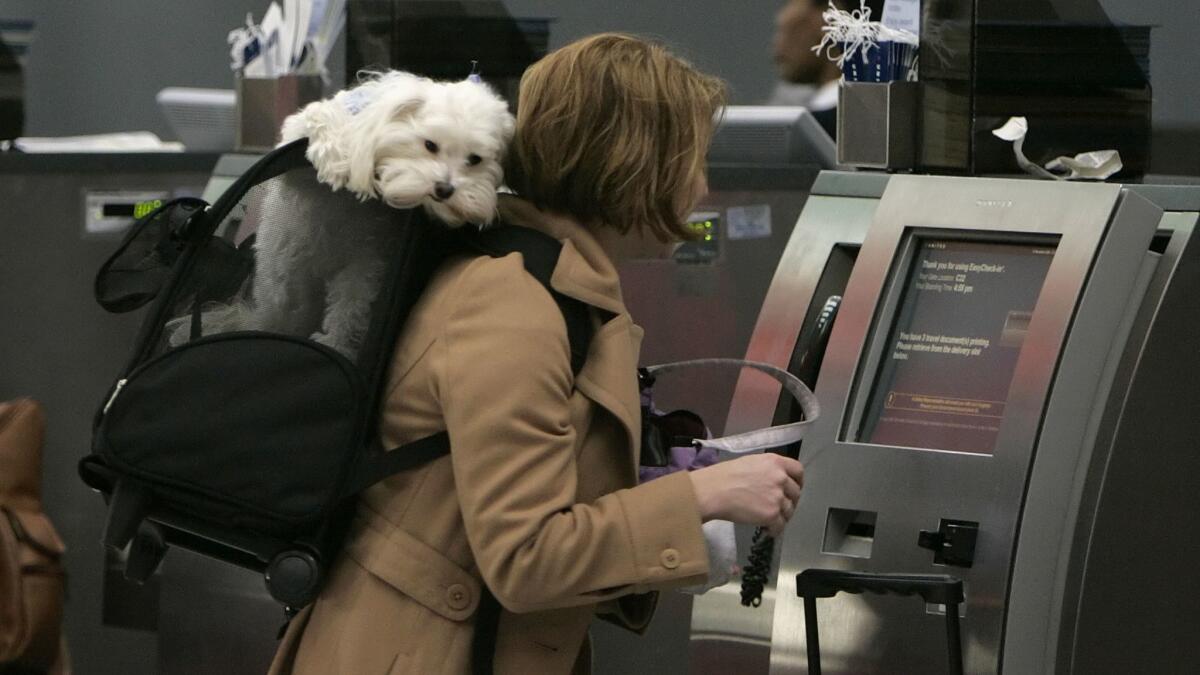Emotional support animals snap, bark and cause disruptions, most flight attendants say

- Share via
Biting, barking, snapping, urinating and defecating.
Such behavior may be expected in an animal shelter, but a union for the nation’s flight attendants says it is now becoming more common on commercial flights.
Nearly two-thirds of flight attendants surveyed say they have seen disruptions in the cabin of commercial flights caused by passengers traveling with so-called emotional support animals.
Those disruptions, according to the survey of nearly 5,000 flight attendants, include snapping, barking, urinating and defecating in the cabin.
The survey, released last week, comes as U.S.-based airlines report a surge of passengers flying with animals, primarily creatures that the travelers say are needed to provide emotional support to ease anxiety and fear. Service animals, on the other hand, are trained to help passengers with physical disabilities, such as blindness.
Federal law says that airlines must allow passengers to bring emotional support animals on planes free of charge, but carriers have responded to the surge of animals in planes by adopting tough new restrictions in the last few months.
The Assn. of Flight Attendants, which represents nearly 50,000 members at 20 airlines, released the survey Thursday to highlight the problems caused by emotional support animals and to call for industrywide policies on such animals.
The group believes many fliers are falsely claiming to need an emotional support animal to travel with a household pet free of charge.
“The rampant abuse of claiming a need for emotional support animals in air travel is negatively impacting all passengers,” said AFA President Sara Nelson. “It’s a safety, health and security issue.”
One flight attendant recalled a passenger lining the cabin floor with training pads to absorb her support animal’s urine and fecal matter.
Among other survey findings:
>82% of flight attendants strongly believe a consistent policy throughout the airline industry is needed;
>62% of flight attendants reported working a flight during which an emotional support animal caused a disruption in the cabin;
>53% of the disruptions included aggressive or threatening behavior by the animal, including snapping at flight attendants;
>43% of the disruptions include animals failing to fit under a seat or on the lap of a passenger, roaming the cabin or barking throughout the flight;
>26% of the disruptions included emotional support animals defecating or urinating in the cabin;
>13% of the disruptions included conflicts between passengers caused by the presence or behavior of an emotional support animal.
To read more about the travel and tourism industries, follow @hugomartin on Twitter.
More to Read
Inside the business of entertainment
The Wide Shot brings you news, analysis and insights on everything from streaming wars to production — and what it all means for the future.
You may occasionally receive promotional content from the Los Angeles Times.










